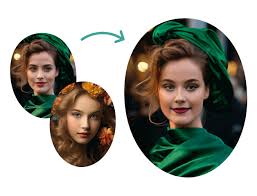In recent years, deepfake technology has gained attention for its ability to create highly realistic and convincing digital media. While often associated with negative connotations like misinformation and identity theft, deepfakes also possess a transformative potential for various industries. This comprehensive guide explores how professionals can leverage deepfake technology to innovate and improve their sectors, all while maintaining ethical standards.
Introduction to Deepfake Technology
deepfake technology involves the use of artificial intelligence (AI) and machine learning to produce or alter video and audio content that appears authentic. By employing techniques such as generative adversarial networks (GANs), deepfakes can convincingly mimic human actions and speech. Understanding this technology’s capabilities is crucial for professionals looking to harness it effectively and responsibly in their respective fields.
Marketing and Advertising
One of the most promising applications of deepfake technology lies in marketing and advertising. Personalized advertisements can be created using deepfakes, where AI-generated influencers engage with individual consumers in a tailored manner. This level of personalization enhances customer experience and engagement, potentially leading to higher conversion rates. Additionally, brands can use deepfake technology to revive past spokespeople or celebrities, creating a nostalgic yet innovative marketing approach.
Entertainment Industry
The entertainment industry stands to benefit significantly from deepfake applications. Filmmakers can employ deepfakes to de-age actors for specific roles, eliminating the need for costly and time-consuming makeup and CGI. Moreover, the technology can be used to create digital doubles for dangerous stunts, ensuring the safety of performers while maintaining high production quality. Voiceovers can also be generated with deepfake technology, allowing for foreign language dubbing and voice replacement without losing the original actor’s unique vocal qualities.
Education and Training
In the educational sector, deepfakes offer new avenues for interactive and immersive learning experiences. Virtual instructors created with deepfake technology can deliver personalized lessons, adapting to the learner’s pace and understanding. Additionally, this technology can be employed in corporate training programs, where realistic simulations of scenarios can help employees practice and develop critical skills in a controlled environment.
Healthcare
Healthcare professionals are exploring deepfake technology for various applications, particularly in medical training and patient care. Virtual patients can be generated to simulate a wide range of medical conditions, providing medical students with hands-on experience in diagnosing and treating illnesses. This technology can also be used to create virtual healthcare assistants, offering patients personalized advice and support based on their medical history and current symptoms.
Legal and Ethical Considerations
While the potential applications of deepfake technology are vast, it is essential to address the legal and ethical implications. Professionals must ensure that their use of deepfakes adheres to regulatory standards and respects individuals’ privacy rights. Clear guidelines and transparency in the creation and deployment of deepfake content are crucial to maintaining public trust and avoiding misuse.
Conclusion
Deepfake technology offers a wealth of opportunities for various industries, from marketing and entertainment to education and healthcare. By understanding and harnessing this technology ethically and responsibly, professionals can drive innovation and improve their fields significantly. As deepfake technology continues to evolve, staying informed about its developments and applications will be essential for those looking to leverage its full potential.
In conclusion, the responsible use of deepfakes can lead to groundbreaking advancements across multiple sectors. By focusing on ethical considerations and adhering to industry standards, professionals can ensure that this powerful technology serves as a force for good, enhancing their work and benefiting society as a whole.
Deepfake Applications for Industry: A Comprehensive Guide for Professionals

Categories:
